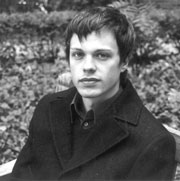By Tracey Lomrantz
While most of his elementary school friends were playing with their G.I. Joe’s and video games, Dan Finley was developing an interest in all things politic — at the ripe old age of 10.
The 22-year-old Libertarian Party member graduated from high school and then college early, and entered his third year of N.Y.U. law school at this summer’s end. At the same time, he entered the District Two City Council race. In true grassroots political fashion, Finley spent nearly every evening and weekend for three months pounding the pavement and appealing to the ears of passersby in order to obtain the requisite 2,700 signatures to get his name on the ballot for the Nov. 4 City Council race. However, he got barely any media coverage.
Finley, who garnered 3.1 percent of the vote in the general election, attributed the lack of attention to his Libertarian affiliation.
“If I were the same person, with the same views, and I were running as a Democrat, there would have been a media circus,” Finley said.
The Democrat in the District Two race was the incumbent and winner Margarita Lopez.
Jacob Karako, another New York Libertarian who ran for City Council in the recent election, believes he has proven moot the adage “What’s in a name?” Karako ran in the primaries as a Democrat, maintaining the same platform as when he ran for Council as a Libertarian in 2001, and managed to get 10 percent of the vote.
The Democratic primary winner in the Fourth District, Eva Moskowitz, went on to retain her seat. A main issue of Karako, a tango teacher, was abolishing the city’s cabaret laws.
“There are people who agree with the ideas,” Karako said, “but do not associate the Libertarian Party with those ideas.”
Libertarians believe in a minimal government role in people’s lives. They believe in a separation of school and state; the government’s only role in education should be the financing of it. When it comes to healthcare issues, Libertarians call for a similar separation of state and medicine. There has also been highly publicized debate over Libertarians’ strong belief in Americans’ right to bear arms. As Finley put it, the party is based upon ideals that are economically conservative and socially liberal.
Finley’s only major endorsement was from the smoker’s rights group Citizens Lobbying Against Smoker Harassment.
The problem, Gary Snyder, chairperson of the Manhattan Libertarian Party, said, is that the American media simply do not hold third parties dear.
“The only way to sell, to get the biggest viewership, readership, listenership, is for them to focus on the frontrunners and play it like a horserace,” Snyder said. “They are only interested in who is running for the victory.”
The party has gotten media attention of late, but not exactly the type it was seeking. Last February, Libertarians were the subject of some scathing press coverage when they handed out toy guns in an East Harlem public school to protest the City Council’s proposal to ban toy guns. The stunt was meant to attract media attention as a means for Libertarians to communicate their beliefs, but backfired when a public outcry ensued.
Finley entered the race knowing his chances of beating Lopez were basically zero, he said. But his goal was not simply to get a seat on City Council.
“I wanted to be on the ballot for people who agree with me to express themselves through their vote,” he said.
A victory for Finley, however, would have been a vote of support for his crusade for the end of city sales and property taxes. His fundamental goal and purpose would have been, Finley said, to defend the property rights of New Yorkers. He supports streamlining regulations and zoning to encourage private housing development. He backs a 50 percent pay cut for Councilmembers. He also supports allowing smoking in bars.
Based on voter registration records, there are about 200 people who also subscribe to this political theory within Finley’s district — which covers Gramercy Park, the Lower East Side, Murray Hill and the East Village.
Asked if he thought a laissez-faire governing principle like Libertarianism would ever really work for a city like New York, Finley, a self-proclaimed “anti-politician,” said, “I don’t want to avoid the question, but it’s kind of irrelevant.” Finley, who majored in philosophy at the University of Washington, said whether Libertarianism actually works is of secondary importance to him, and his mission is primarily a matter of rightness.
Either way, the young politico is not giving up quite yet.
“Getting onto the ballot is not insurmountable,” Finley said. “I did it, and I may do it again.”







































